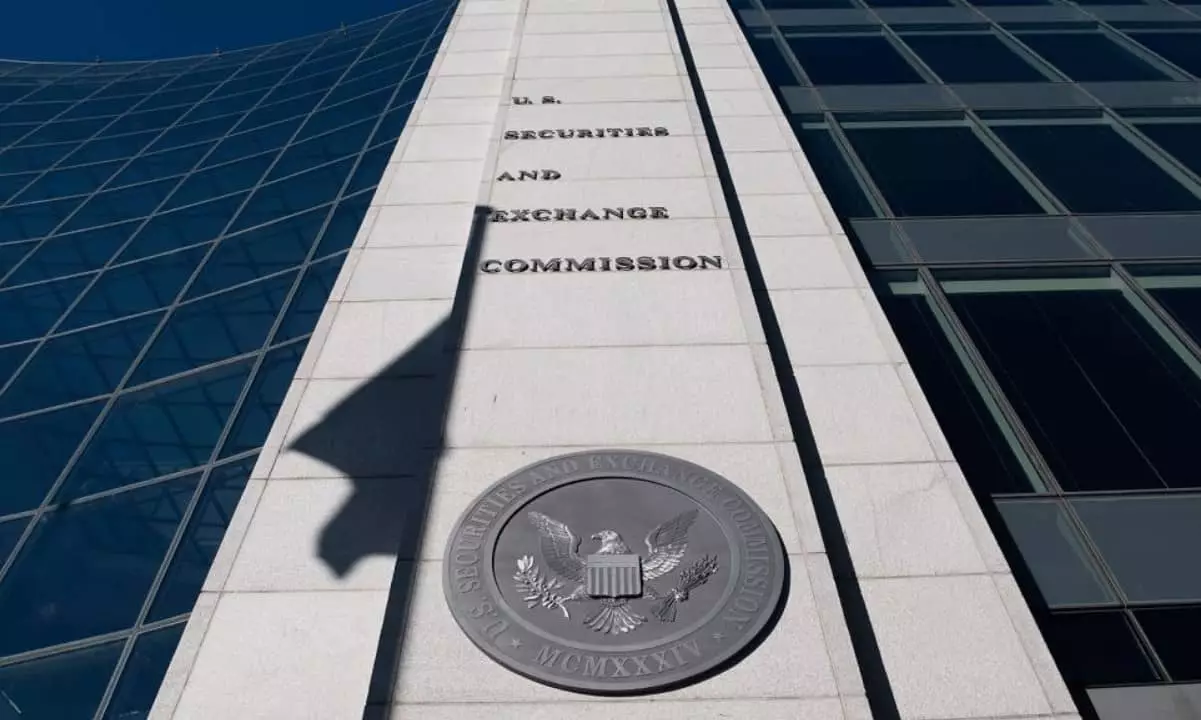The ongoing debate surrounding cryptocurrency regulation has taken a new turn, as Republican lawmakers raise serious concerns about the Securities and Exchange Commission’s (SEC) recent guidance on crypto custody. Led by prominent figures such as Rep. Patrick McHenry and Sen. Cynthia Lummis, these lawmakers are urging the SEC to revoke its Staff Accounting Bulletin No. 121 (SAB 121). The move highlights alarming questions about the SEC’s regulatory processes and the implications of its decisions on those within the cryptocurrency sector.
SAB 121 mandates that custodians of digital assets recognize liabilities on their balance sheets that reflect the fair market value of the cryptocurrencies they hold. Traditionally, such accounting practices have not required custodians to treat digital assets in the same way. Critics argue that this approach distorts the economic reality of custodians’ operations, significantly increasing the risk profile for consumers. By imposing burdensome accounting requirements without adequate consultation or public discourse, the SEC may inadvertently compromise investor protections.
In a letter addressed to SEC Chair Gary Gensler, McHenry and Lummis articulated concerns regarding the absence of comprehensive consultation with critical regulatory bodies. They claim that this oversight undermines consumer safety and leads to confusion among stakeholders. More significantly, the SEC’s approach flies in the face of established legal procedures, bypassing the customary rulemaking process mandated by the Administrative Procedure Act (APA).
The legislators pointed out that SAB 121 conflicts with the consensus around regulatory practices. Citing a ruling from the Government Accountability Office (GAO), they assert that SAB 121 should be classified as a “rule” under the Congressional Review Act. This interpretation implies that the SEC’s issuance of the bulletin should have undergone the formal notice-and-comment rulemaking process. Instead, the SEC framed it merely as staff guidance, skipping essential steps in accountability.
This officials’-only process raises critical questions about how the SEC addresses compliance among varying financial institutions. For instance, while SAB 121 is rigorously applied to many custodians, certain firms like BNY Mellon seem to have received exemptions from the rule. The selective enforcement of regulations not only creates a perception of favoritism but also raises ethical issues regarding transparency in regulatory practices.
The permissive attitude towards BNY Mellon is troubling, especially considering that smaller players in the crypto custody space struggle to meet these accounting requirements. As larger institutions receive special treatment, the traditional custodians face a steep uphill battle in navigating the complex landscape shaped by SAB 121. With some firms benched and others fast-tracked, the inconsistencies entail a blatant disregard for fair competition within the sector.
During a public hearing in Wyoming, Chris Land, the general counsel for Sen. Lummis, revealed that BNY Mellon was exempted from portions of SAB 121 while pursuing its ambitions in the crypto market. This revelation feeds into a broader narrative in which essential regulations can be manipulated to serve the interests of certain firms over others, ultimately jeopardizing total market integrity.
Lawmakers like McHenry and Lummis echo a call for the SEC to adopt a more uniform application of its rules. They contend that inconsistent enforcement threatens the fundamental premise on which investor protections are erected. The notion that the SEC can pick “winners and losers” within the crypto ecosystem can deter innovation and limit opportunities for less established firms eager to enter the market.
Furthermore, the letter from lawmakers expresses discontent about the lack of transparency in the SEC’s dealings with various institutions. If the regulatory framework is indeed flexible enough to allow exemptions for favored entities, the broader implications for consumer trust and market confidence cannot be understated. Lawmakers are right to question such uneven treatment; it undermines the expected uniformity and fairness of a regulatory framework.
The SEC’s approach to crypto custody, especially concerning Staff Accounting Bulletin No. 121, invites scrutiny and reinforces the need for comprehensive regulatory reform. By rescinding SAB 121 and reopening discussions surrounding its legal basis, the SEC could restore faith in its commitment to fairness and investor protection. A transparent, accountable, and consistent approach to regulation is essential for nurturing a healthy cryptocurrency market that benefits all participants, not just a select few. The call for reform is not merely an administrative issue; it embodies the quest for fairness and integrity in a rapidly evolving financial landscape.


Leave a Reply